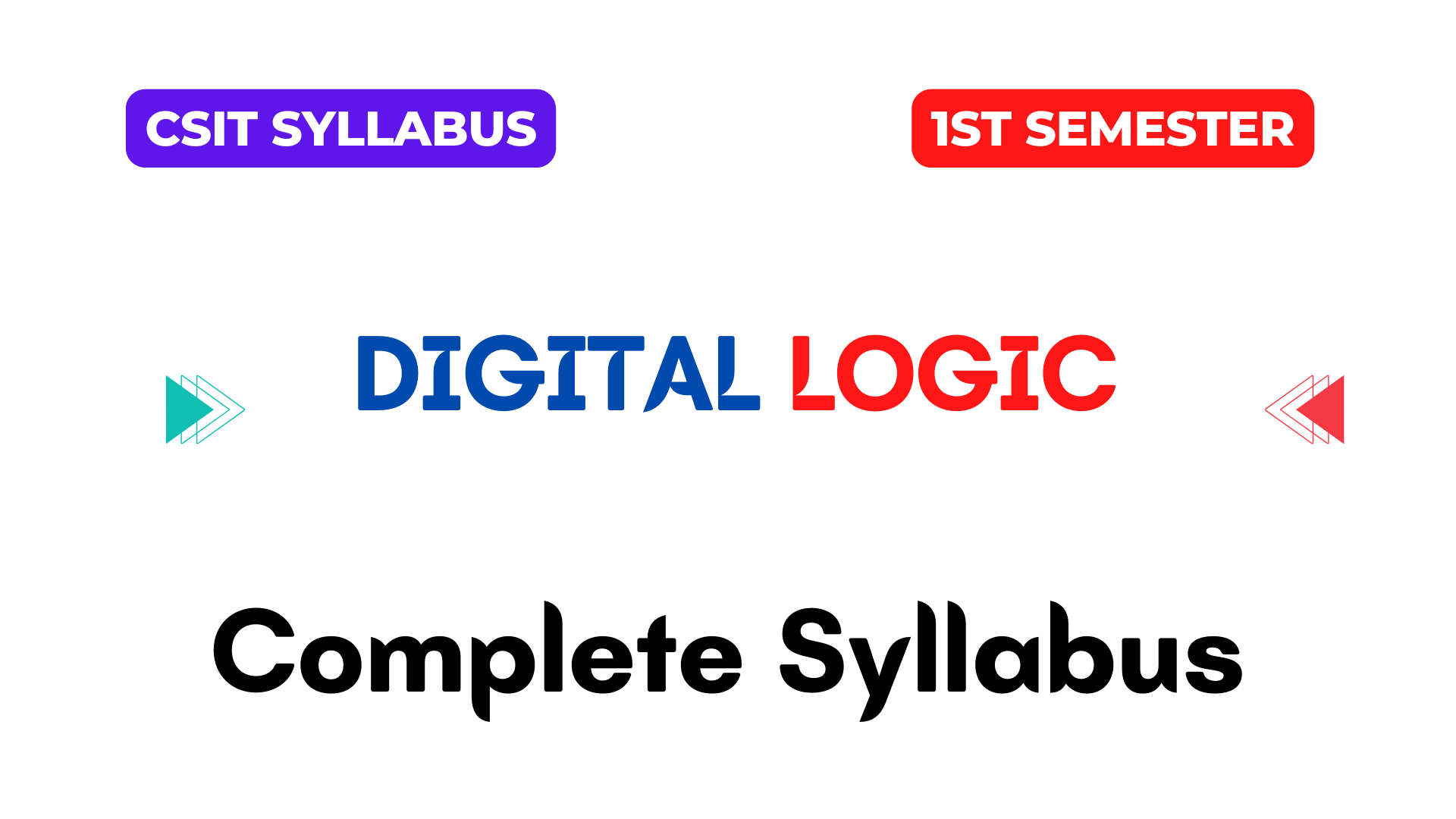B.Sc. CSIT Digital Logic Syllabus is a comprehensive course that covers the fundamental principles of digital logic and its applications in computer science and engineering.
The syllabus is divided into 7 units, starting with an introduction to binary systems and Boolean algebra and covering topics such as logic gates, simplification of Boolean functions, combinational logic, combinational logic with MSI and LSI, synchronous and asynchronous sequential logic, and registers and counters.
Through this course, students will learn about the basic building blocks of digital systems and how they are used to design and implement complex digital circuits and systems. The syllabus is designed to provide students with a strong foundation in the principles of digital logic and prepare them for further study in the field.
Digital Logic Syllabus
General Information
| Course | B.SC. CSIT |
|---|---|
| Course Title | Digital Logic |
| Course No | CSC111 |
| Nature of the course | Theory + Lab |
| Semester | I (First) |
| Full Marks | 60 + 20 + 20 |
| Pass Marks | 24 + 8 + 8 |
| Credit Hrs. | 3 |
CHAPTER LIST: Digital Logic
| S.N. | Chapter |
|---|---|
| Unit 1 | Binary Systems |
| Unit 2 | Boolean algebra and Logic Gates |
| Unit 3 | Simplification of Boolean Function |
| Unit 4 | Combinational Logic |
| Unit 5 | Combinational Logic with MSI and LSI |
| Unit 6 | Synchronous and Asynchronous Sequential Logic |
| Unit 7 | Registers and Counters |
Course Description : This course covers the concepts of digital logic and switching networks. The course includes the fundamental concepts of Boolean algebra and its application for circuit analysis, multilevel gates networks, flip-lops, counters logic devices and synchronous and asynchronous sequential logic and digital integrated circuits.
Course Objective : The main objective of this course is to introduce the basic tools for the design of digital circuits and introducing methods and procedures suitable for a variety of digital design applications.
Course Contents
Unit 1: Binary Systems
Course Duration: 6 Hours
Digital Systems, Binary numbers, Number base conversion, Octal and hexadecimal numbers, compliments, Signed Binary numbers, Decimal codes (BCD, 2 4 2 1,8 4 -2 -1, Excess 3, Gray Code), Binary Storage and Registers, Binary logic.
Unit 2: Boolean algebra and Logic Gates
Course Duration: 5 Hours
Basic and Axiomatic definitions of Boolean algebra, Basic Theorems and properties of Boolean Algebra, Boolean Functions, Logic Operations, Logic Gates, Integrated Circuits.
Unit 3: Simplification of Boolean Functions
Course Duration: 5 Hours
K-map, Two and Three variable maps, Four variable maps, product of sum simplification, NAND and NOR implementation, Don’t Care conditions, Determinant and selection of Prime Implicants.
Unit 4: Combinational Logic
Course Duration: 5 Hours
Design Procedure, Adders, Subtractors, Code Conversions, Analysis Procedure, Multilevel NAND and NOR Circuits, Exclusive-OR Circuits.
Unit 5: Combinational Logic with MSI and LSI
Course Duration: 8 Hours
Binary Parallel Adder and Subtractor, Decimal Adder, Magnitude Comparator, Decoders and Encoders, Multiplexers, Read-only-Memory (ROM), Programmable Logic Array (PLA), Programmable Array Logic (PAL).
Unit 6: Synchronous and Asynchronous Sequential Logic
Course Duration: 10 Hours
Flip-Flops, Triggering of flip-flops, Analysis of clocked sequential circuits, Design with state equations and state reduction table, Introduction to Asynchronous circuits, Circuits with latches.
Unit 7: Registers and Counters
Course Duration: 6 Hours
Registers, Shift registers, Ripple Counters, Synchronous Counters, Timing Sequences, The memory.
Laboratory Works
Students should be able to realize following digital logic circuits as a part of laboratory work. Familiarizations with logic gates, Combinatorial Circuits, Code Converters, Design with Multiplexers, Adders and Subtractors, Flip-Flops, Sequential Circuits, Counters, Clock Pulse Generator.
Digital logic Books
Text Books:
- M. Morris Mano, “Digital Logic & Computer Design”
Reference Books:
Brain Holdsworth, “Digital Logic Design”, Elsevier Science.
John Patrick Hayes, “Introduction to Digital Logic Design”, Addison-Wesley.
M. Morris Mano and Charles Kime, “Logic and Computer Design Fundamentals”, Pearson New International
